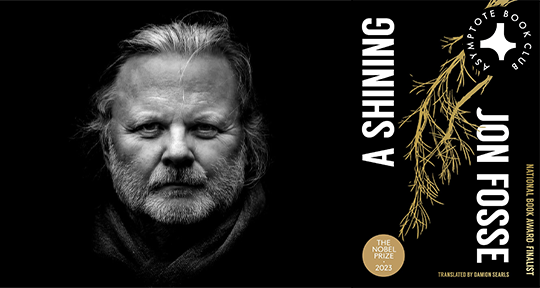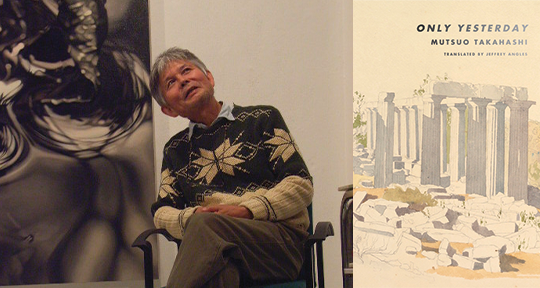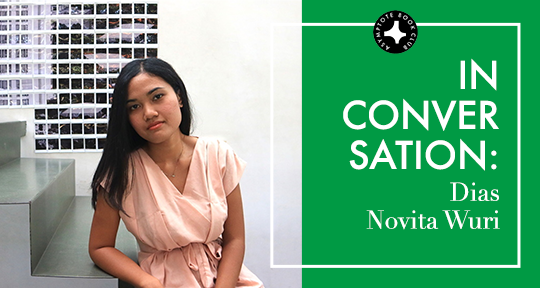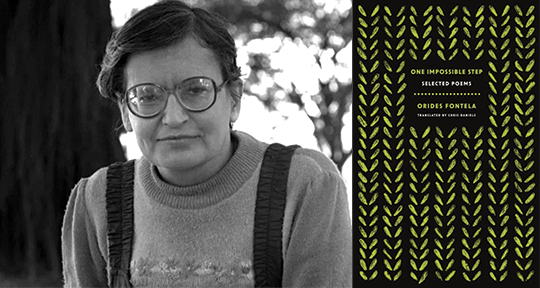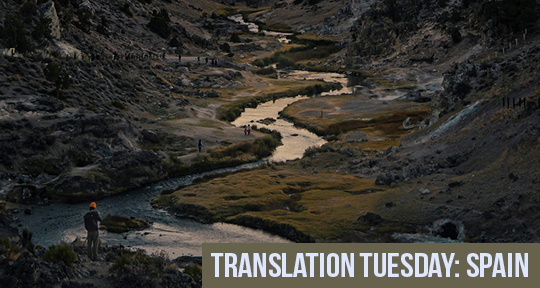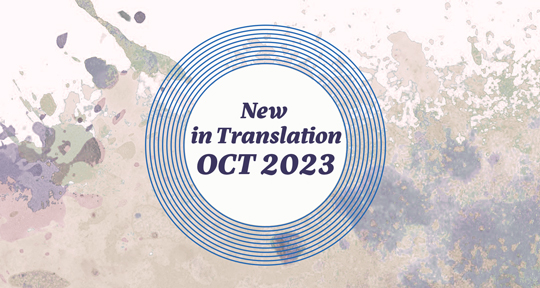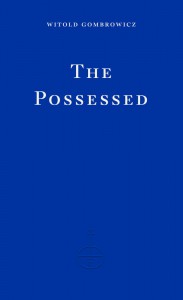Today is Halloween, so here is a Halloween-related story: eleven years ago, after launching our Halloween-themed Fall 2012 issue, we heard that the cover (by guest artist June Glasson) hadn’t gone over well in some corners of the Internet. Despite their clearly (or so I thought!) childlike proportions, its ghoulish trick-or-treaters reminded some readers of the Ku Klux Klan. We learnt a valuable lesson about spelling out editorial intentions, especially when a lot is at stake. This Translation Tuesday, as we present two heartbreaking poems by past contributor Olivia Elias in Jérémy Victor Robert’s lucid translation—poems that were written before the October 7th attack, but which nevertheless speak to the ongoing humanitarian crisis—I want to make clear that we stand against Hamas’s brutality as well as with innocent civilian Gazans who are now being drawn into the war. We call for a ceasefire—which the U.N. overwhelmingly voted for three days ago—to be enacted immediately. We also chose to publish these poems against the backdrop of Palestinian voices being silenced—such as when the Frankfurt Book Fair recently canceled its prize presentation ceremony honoring Adania Shibli for Minor Detail—incidentally, our May 2020 Book Club pick. It is especially during such fraught times that we should listen to and read one another.
—Lee Yew Leong, Editor-in-Chief, Asymptote
floating everywhere, the white shadows
often pain wakes them
in their severed limbxxxa brain area
lights upxxxneurologists say
phantom limb pain (named)
/
likewise on the world map
& in the cortexxxxthe indelible print
as if it could be enough to replace
with a pen stroke plus a few
statements/vetoesxxxa country’s name
to erase it
isn’t there always in our homes
at our tablesxxxa place for ghosts
floating everywhere, the white shadows
Tongue like Ground
tongue like ground
riddled with holes
words unwilling to take
shape
keep escaping through
holes
all I do is repeatxxxrepeat
xxxmy Name
xxxxis not
xxxNo One
xxxxfrom
xxxthe Land
xxxxof
xxxNo One
against burying under screedxxxrepeat
mantra
xxxxam fully alive made of silt & clay from this Mount
overlooking the same seaxxxupon which shines the same sun
as in the early stages
Translated from the French by Jérémy Victor Robert
A poet of the Palestinian diaspora, born in Haifa in 1944, Olivia Elias writes in French. She lived until the age of 16 in Lebanon, where her family took refuge in 1948, then in Montréal, Canada, before moving to France. Characterized by terse language and strong rhythms, her poetry shows a deep sensitivity to the Palestinian cause, the plight of refugees, and human suffering. Her work, translated into English, Arabic, Spanish, Italian and Japanese, appeared in anthologies and numerous journals, including Arablit, Asymptote Journal, Plume Poetry, Poetry Daily, Poetry London, The Barcelona Review, Circulo de Poesía, Nayagua, Arablit, Al Araby-Al- Jedeed and, in France, Apulée, Poezibao, Poésie première, and Phoenix. With Chaos, Crossing, translated by Kareem James Abu-Zeid, she made her English-language debut, probing deeply into the upheavals of the 20th and 21st centuries. Published in November 2022 by World Poetry, the collection was reviewed by Poetry Foundation and figures among World Literature Today’s 75 Notable Translations of 2022 and onWords Without Borders’ November Watchlist. In September 2023 appeared, in a limited illustrated edition, Your Name, Palestine, a chapbook translated by Sarah Riggs and Jérémy Victor Robert (World Poetry Books).
Jérémy Robert is a translator between English and French who works and lives in his native Réunion Island. He published French translations of Sarah Riggs’ Murmurations (APIC, 2021, with Marie Borel), Donna Stonecipher’s Model City (joca seria, 2020), and Etel Adnan’s Sea & Fog (L’Attente, 2015). He recently translated Chibuihe Obi Achimba’s poem, “a sonnet: a slaughter field,” which was published on Poezibao’s website, and Michael Palmer’s Little Elegies for Sister Satan, excerpts of which were posted online by Revue Catastrophes. Together with Sarah Riggs, he translated Olivia Elias’ Your Name, Palestine (World Poetry Books, 2023).
***
Read more from Translation Tuesdays on the Asymptote blog:


